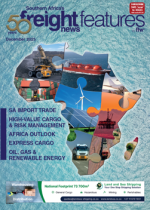“Africa cannot eat potential. No one smokes natural gas or drinks crude oil.”That quote from Dr Akinwumi A Adesina, president of the African Development Bank, (Af DB) was used by Prof Kevin Chika Urama at the launch of the bank’s African Economic Outlook 2023 Report on “Mobilising Private Sector Financing for Climate and Green Growth in Africa”.Urama, who is chief economist and vice president for economic governance and knowledge management at the Af DB, pointed out that Africa is a $2.97-trillion economy with five of the world’s 10 fastest-growing economies.It has a young population which is expected to reach 2.4 billion by 2050. Natural resources include 45% of technical potential in renewable energy – the highest in the world; about 65% of the world’s uncultivated arable land; and 30% of global mineral deposits. “Despite all these potentials, the continent lags several other world regions in harnessing climate and green growth opportunities. “The current model of unfettered extraction of natural resources for production of manufactured products in distant lands and shipping them to Africa is not good for economic, social, or environmental sustainability,” he said.The report notes that Africa lags all other regions across all green growth opportunities: green trade, green employment, green innovation, and green investment.“Overall, Africa is not even halfway to meeting green growth and sustainability targets.“On natural capital protection, progress remains slow as African countries continue to struggle with illicit resource and financial f lows.“On efficient and sustainable resource use and social inclusion, Africa is almost at par with other world regions, thanks to good progress in improving access to basic services and resources such as water, sanitation, electricity, and clean fuels, and in increasing gender balance and social equity,” said Urama.He added that the private sector “has shown little appetite for Africa’s climate actions and green growth.“Out of the $29.5bn of climate finance f lows to Africa in 2019/2020, private climate finance accounted for only 14% or $4.2bn. This is the lowest share in the world.”Urama sees the advent of electric vehicles as a key driver of value addition.“Africa can significantly move up the battery and electric vehicles value chain, moving away from the current focus on mining green minerals and metals with limited value addition.

